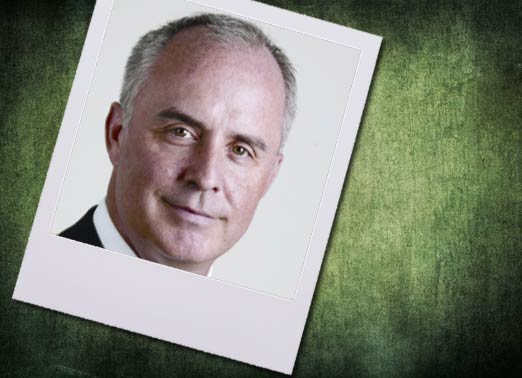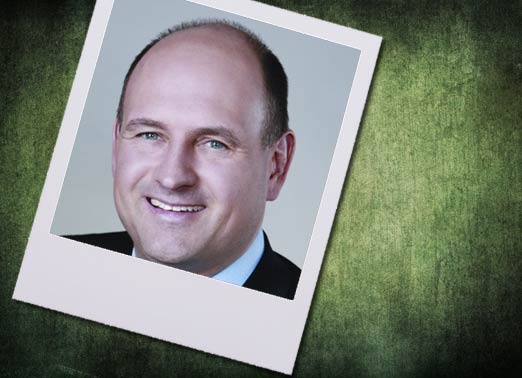Panda Security: Patti Smith
To better support its network of MSPs, Panda has partnered with Kanata, Ont.-based Level Platforms and is launching a new MSP program for resellers.
“We have a cloud-based solution free of charge to partners,” said Patti Smith, national channel manager for Panda Security Canada. “It’s a management console so they can manage their end-clients’ security-as-a-service, and they can do all the management from one single console.”
The goal for Panda this year is to add 36 new elite partners, 48 new premier partners and 100 new business partners. “Our product works well in the SMB space, but we don’t want to overpopulate,” said Smith. “We want to ensure there’s plenty of margin for those partners in those regions.”

Sophos: Matt Fogelgren
Canadian partners of leading security firm Sophos Ltd. saw major growth in 2010 through its Managed Service Provider Program and “co-selling” model—and under the direction of Matt Fogelgren, the company’s director of North American channel sales.
The company’s high level of support for its partners makes it stand out, he said. “Philosophically, we clearly are 100 per cent committed to the channel,” he said, a strategy the company has had for the past few years.
Sophos’ Global Partner Program was modelled after its successful North American strategy by including personalized training for partners, deal protection and technical support.
“We’re looking for our partners to leverage that portfolio and save their customers time and money,” he said. “There is a low-margin, high-volume shark tank mentality out there,” he said, which Sophos purposely avoids.

Symantec: Fred Patterson
“The real motivation or goal for a partner should be to look internally at what problems they are trying to solve for their customers and then look for an appropriate specialization,” said Fred Patterson, director of Channels with Symantec Canada. “If a partner is heavily involved in backup or storage, they should be looking at data protection and storage optimization specializations.”
Symantec’s X factor, he said, is its master specialization program. Within each specialization there is a higher level of specialization that partners can achieve.
“In Canada a high proportion of our business goes through our channel community, and we’re continually moving more of our business through our partners,” said Patterson. “The reason we’re doing that is for efficiency, for the ability for Symantec to reach farther and deeper across geographies, markets and solution sets.”

Trend Micro: Ian Gordon
What’s new for Trend is we’re running Canada separately from the U.S. now,” said Ian Gordon, Trend Micro Canada’s channel chief. “There’s a huge difference in the level of resources available.” The vendor has gone from six staff to 28 in Canada, with sales reps from Vancouver to Montreal. It also has more technical resources available to Canadian VARs.
“A lot of people perceive anti-virus, anti-malware as being a commodity item, which from a channel perspective makes it hard to get people excited about it,” said Gordon. “But not all products are anywhere near the same in terms of how effective they are, that’s the difference we try to get across to our partners.”

Websense: Fiaaz Walji
At Websense, it’s all about “doing right by the partner and finding ways to grow…business together,” Fiaaz Walji, the company’s Canadian country manager said.
The company has a tiered partner program, better known as the Websense Global Channel Partner Program that provides partners with the necessary infrastructure, tools, resources and support so they can be more profitable in their business.
When asked about its growth strategy for its channel, Walji said it’s always a matter of quality instead of quantity. The successful channel partners with Websense are the ones who are solutions-focused versus transaction-focused. Other key attributes are acting as the trusted business advisor and being the security specialist for customers, Walji said.

With new threats popping up every day (and old ones returning), security is a crucial market for businesses. CDN asked eight channel executives in the market about their philosophies regarding their companies, security and the channel.

Check Point Software Technologies: Paul Comessotti
With new security threats and issues popping up daily, Check Point Software Technologies and its Canadian regional director, Paul Comessotti, are looking for channel partners who can commit to the cause.
It doesn’t have to be extensive, but a commitment to security is crucial, he said. “There needs to be an investment on their part,” he said. “I don’t necessarily need people to come and promote the product,” he said. “I need people who have an opinion.”
“We’re truly one of the few manufacturers that has a fundamental mandate of 100 per cent revenue through the channel,” he said. Many other companies have different strategies when it comes to the channel, he said. “When it reaches a certain point, companies sometimes step in and take it direct. We don’t do that.”

Kaspersky Lab: Kevin Krempulec
The philosophy behind Kaspersky Lab’s Green Team partner program is to keep options as flexible as possible for resellers. Kaspersky opened its Canadian office in 2008, and has been actively hiring local channel reps and support engineers.
“We’ve got that local reach now,” said Kevin Krempulec, general manager of Kaspersky Lab in Canada. “Every vendor has a partner program, but it’s how you deliver what’s in there,” he said. The philosophy at Kaspersky is around responsiveness.
“We’ve got to make sure that when partners have questions, whether pre-sales or support, they’ve got a means to get answers,” he said. This could mean going to the vendor’s partner portal, calling into its 1-800 hotline or talking to a channel account manager. “My personal goal is to have a two-hour response time. We work towards that.”

McAfee: Ned D’Antonio
McAfee is 100 per cent channel in Canada. The vendor has about 600 resellers here, but more importantly than adding more partners is investing in partners who want to invest with McAfee, “kind of a model to do more with fewer,” said Ned D’Antonio, the company’s channel director for Canada.
The idea is that partners will develop their own leads or take a handoff from McAfee and be able to run with it from pre-sales to deployment. “I’m not a big believer in financial commitments. My belief is investment in terms of training.”
McAfee is also developing vertical markets. “Our network security is uniquely developed for government-type organizations,” he said, and can be used at federal, provincial and municipal levels, as well as for education and healthcare.

Panda Security: Patti Smith
To better support its network of MSPs, Panda has partnered with Kanata, Ont.-based Level Platforms and is launching a new MSP program for resellers.
“We have a cloud-based solution free of charge to partners,” said Patti Smith, national channel manager for Panda Security Canada. “It’s a management console so they can manage their end-clients’ security-as-a-service, and they can do all the management from one single console.”
The goal for Panda this year is to add 36 new elite partners, 48 new premier partners and 100 new business partners. “Our product works well in the SMB space, but we don’t want to overpopulate,” said Smith. “We want to ensure there’s plenty of margin for those partners in those regions.”

Sophos: Matt Fogelgren
Canadian partners of leading security firm Sophos Ltd. saw major growth in 2010 through its Managed Service Provider Program and “co-selling” model—and under the direction of Matt Fogelgren, the company’s director of North American channel sales.
The company’s high level of support for its partners makes it stand out, he said. “Philosophically, we clearly are 100 per cent committed to the channel,” he said, a strategy the company has had for the past few years.
Sophos’ Global Partner Program was modelled after its successful North American strategy by including personalized training for partners, deal protection and technical support.
“We’re looking for our partners to leverage that portfolio and save their customers time and money,” he said. “There is a low-margin, high-volume shark tank mentality out there,” he said, which Sophos purposely avoids.

Symantec: Fred Patterson
“The real motivation or goal for a partner should be to look internally at what problems they are trying to solve for their customers and then look for an appropriate specialization,” said Fred Patterson, director of Channels with Symantec Canada. “If a partner is heavily involved in backup or storage, they should be looking at data protection and storage optimization specializations.”
Symantec’s X factor, he said, is its master specialization program. Within each specialization there is a higher level of specialization that partners can achieve.
“In Canada a high proportion of our business goes through our channel community, and we’re continually moving more of our business through our partners,” said Patterson. “The reason we’re doing that is for efficiency, for the ability for Symantec to reach farther and deeper across geographies, markets and solution sets.”

Trend Micro: Ian Gordon
What’s new for Trend is we’re running Canada separately from the U.S. now,” said Ian Gordon, Trend Micro Canada’s channel chief. “There’s a huge difference in the level of resources available.” The vendor has gone from six staff to 28 in Canada, with sales reps from Vancouver to Montreal. It also has more technical resources available to Canadian VARs.
“A lot of people perceive anti-virus, anti-malware as being a commodity item, which from a channel perspective makes it hard to get people excited about it,” said Gordon. “But not all products are anywhere near the same in terms of how effective they are, that’s the difference we try to get across to our partners.”

Websense: Fiaaz Walji
At Websense, it’s all about “doing right by the partner and finding ways to grow…business together,” Fiaaz Walji, the company’s Canadian country manager said.
The company has a tiered partner program, better known as the Websense Global Channel Partner Program that provides partners with the necessary infrastructure, tools, resources and support so they can be more profitable in their business.
When asked about its growth strategy for its channel, Walji said it’s always a matter of quality instead of quantity. The successful channel partners with Websense are the ones who are solutions-focused versus transaction-focused. Other key attributes are acting as the trusted business advisor and being the security specialist for customers, Walji said.

With new threats popping up every day (and old ones returning), security is a crucial market for businesses. CDN asked eight channel executives in the market about their philosophies regarding their companies, security and the channel.

Check Point Software Technologies: Paul Comessotti
With new security threats and issues popping up daily, Check Point Software Technologies and its Canadian regional director, Paul Comessotti, are looking for channel partners who can commit to the cause.
It doesn’t have to be extensive, but a commitment to security is crucial, he said. “There needs to be an investment on their part,” he said. “I don’t necessarily need people to come and promote the product,” he said. “I need people who have an opinion.”
“We’re truly one of the few manufacturers that has a fundamental mandate of 100 per cent revenue through the channel,” he said. Many other companies have different strategies when it comes to the channel, he said. “When it reaches a certain point, companies sometimes step in and take it direct. We don’t do that.”

Kaspersky Lab: Kevin Krempulec
The philosophy behind Kaspersky Lab’s Green Team partner program is to keep options as flexible as possible for resellers. Kaspersky opened its Canadian office in 2008, and has been actively hiring local channel reps and support engineers.
“We’ve got that local reach now,” said Kevin Krempulec, general manager of Kaspersky Lab in Canada. “Every vendor has a partner program, but it’s how you deliver what’s in there,” he said. The philosophy at Kaspersky is around responsiveness.
“We’ve got to make sure that when partners have questions, whether pre-sales or support, they’ve got a means to get answers,” he said. This could mean going to the vendor’s partner portal, calling into its 1-800 hotline or talking to a channel account manager. “My personal goal is to have a two-hour response time. We work towards that.”

McAfee: Ned D’Antonio
McAfee is 100 per cent channel in Canada. The vendor has about 600 resellers here, but more importantly than adding more partners is investing in partners who want to invest with McAfee, “kind of a model to do more with fewer,” said Ned D’Antonio, the company’s channel director for Canada.
The idea is that partners will develop their own leads or take a handoff from McAfee and be able to run with it from pre-sales to deployment. “I’m not a big believer in financial commitments. My belief is investment in terms of training.”
McAfee is also developing vertical markets. “Our network security is uniquely developed for government-type organizations,” he said, and can be used at federal, provincial and municipal levels, as well as for education and healthcare.

Panda Security: Patti Smith
To better support its network of MSPs, Panda has partnered with Kanata, Ont.-based Level Platforms and is launching a new MSP program for resellers.
“We have a cloud-based solution free of charge to partners,” said Patti Smith, national channel manager for Panda Security Canada. “It’s a management console so they can manage their end-clients’ security-as-a-service, and they can do all the management from one single console.”
The goal for Panda this year is to add 36 new elite partners, 48 new premier partners and 100 new business partners. “Our product works well in the SMB space, but we don’t want to overpopulate,” said Smith. “We want to ensure there’s plenty of margin for those partners in those regions.”




